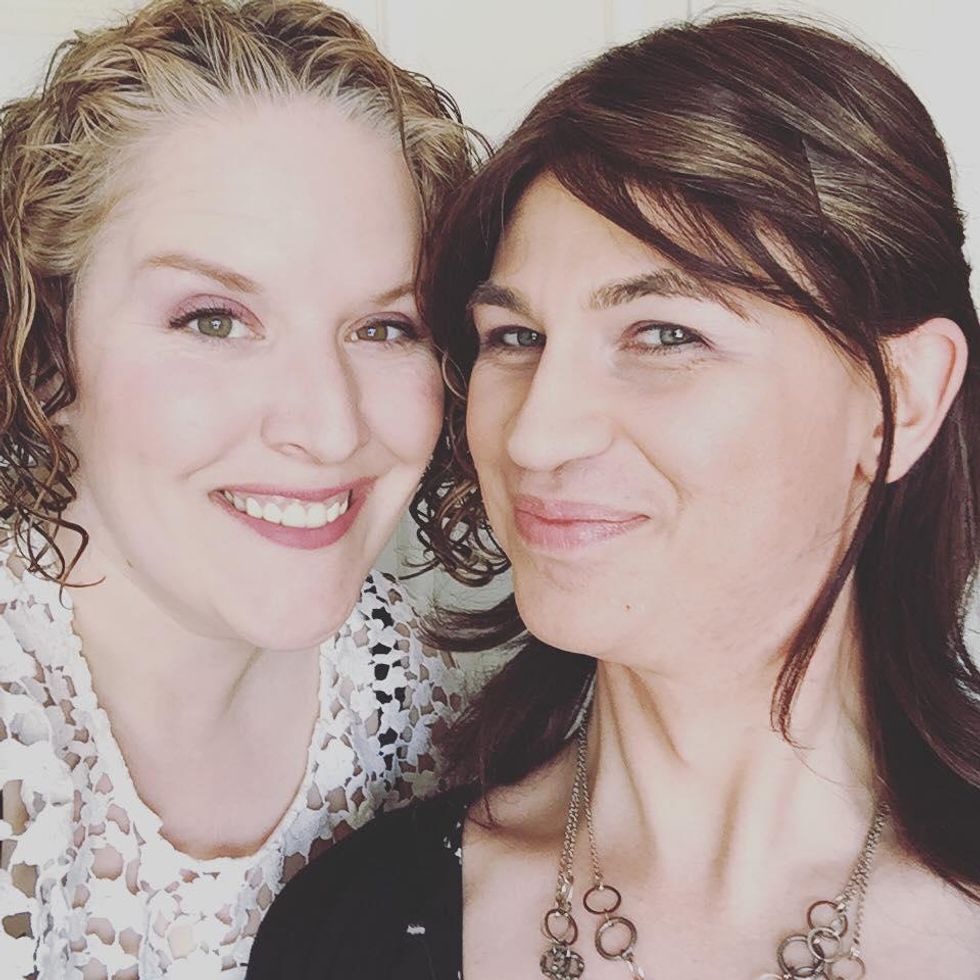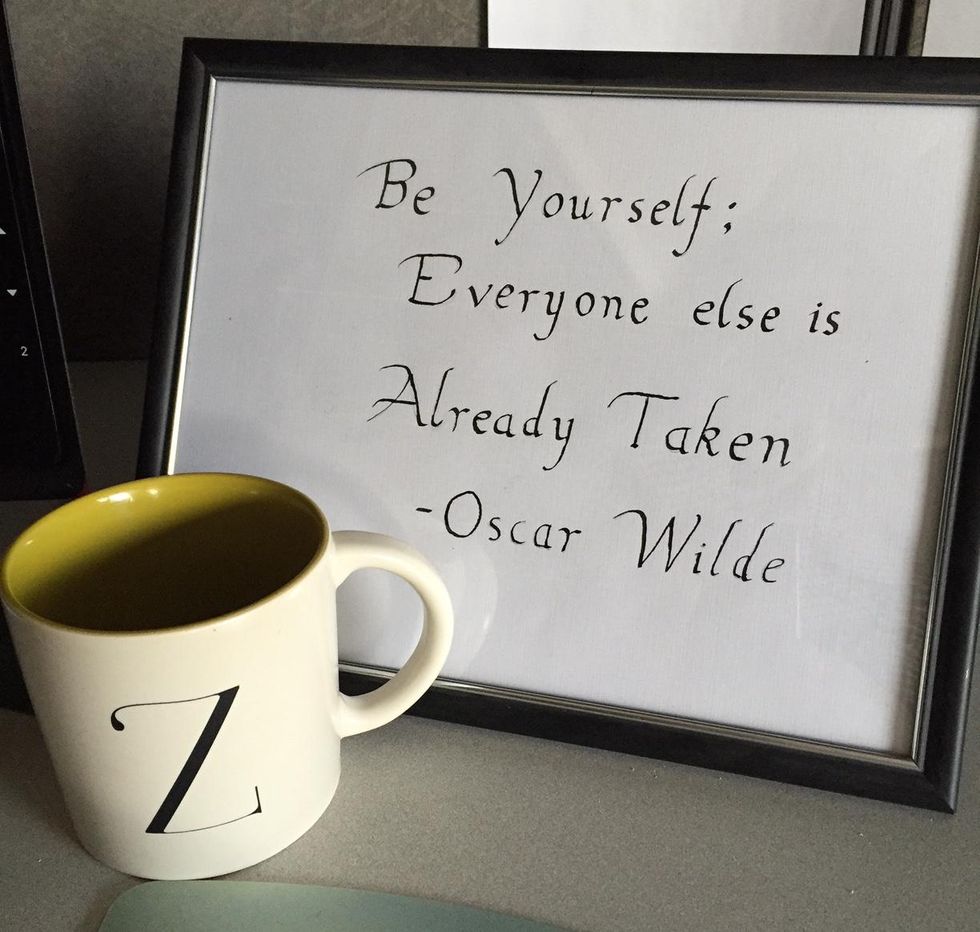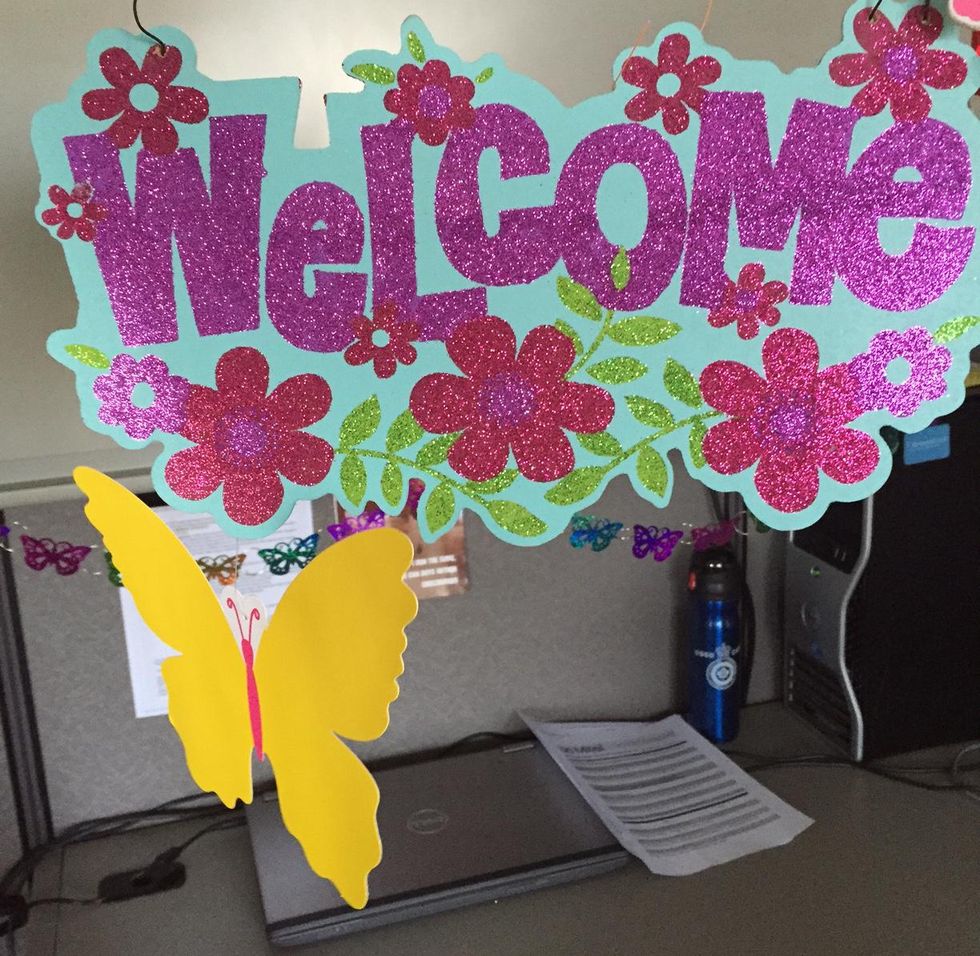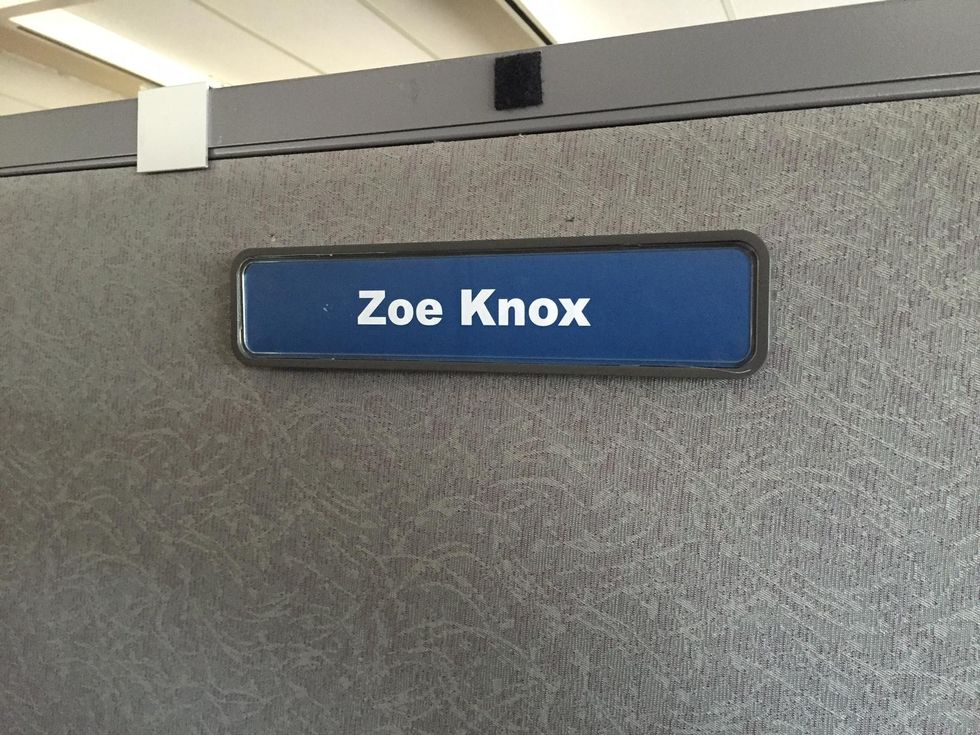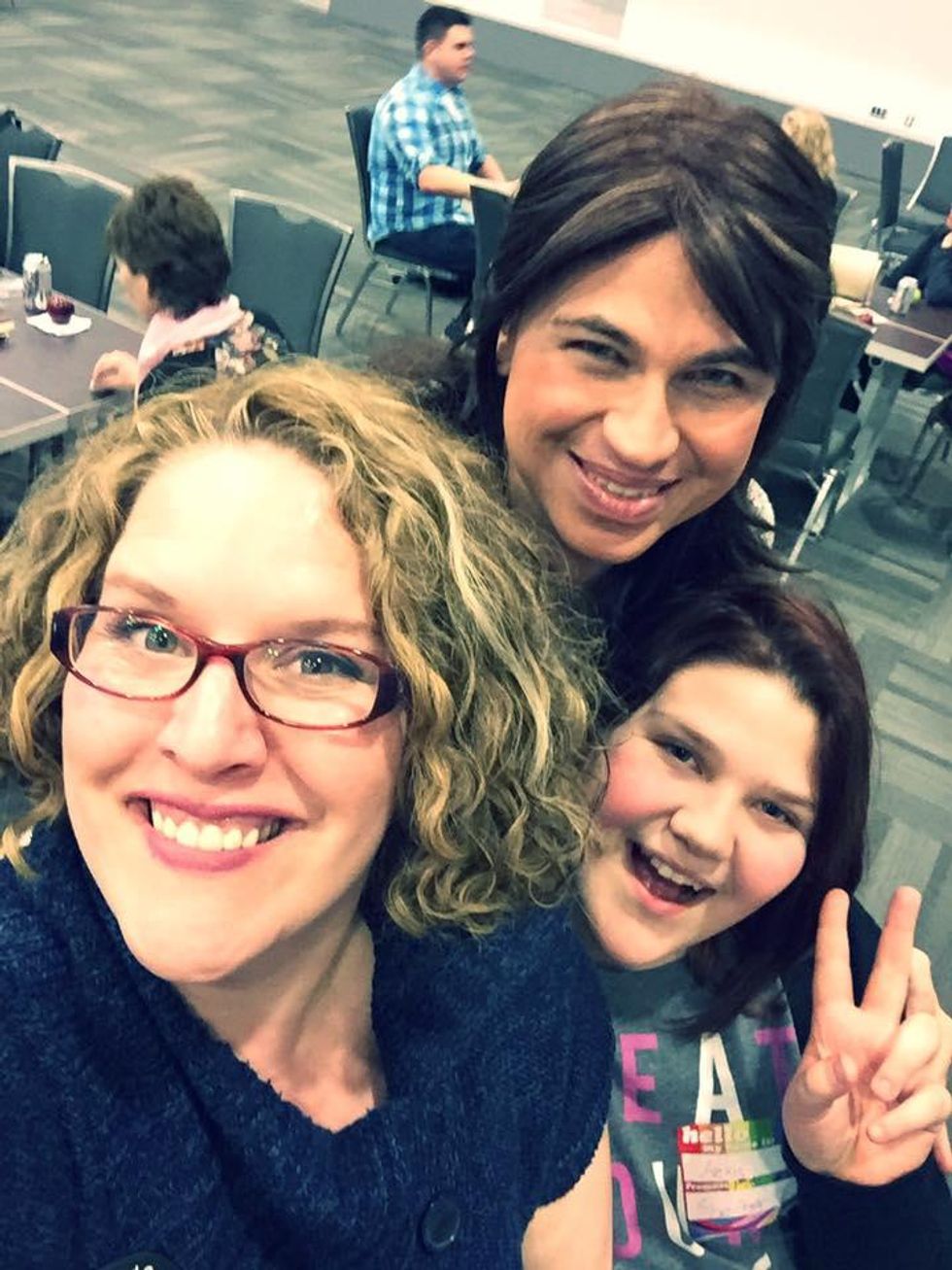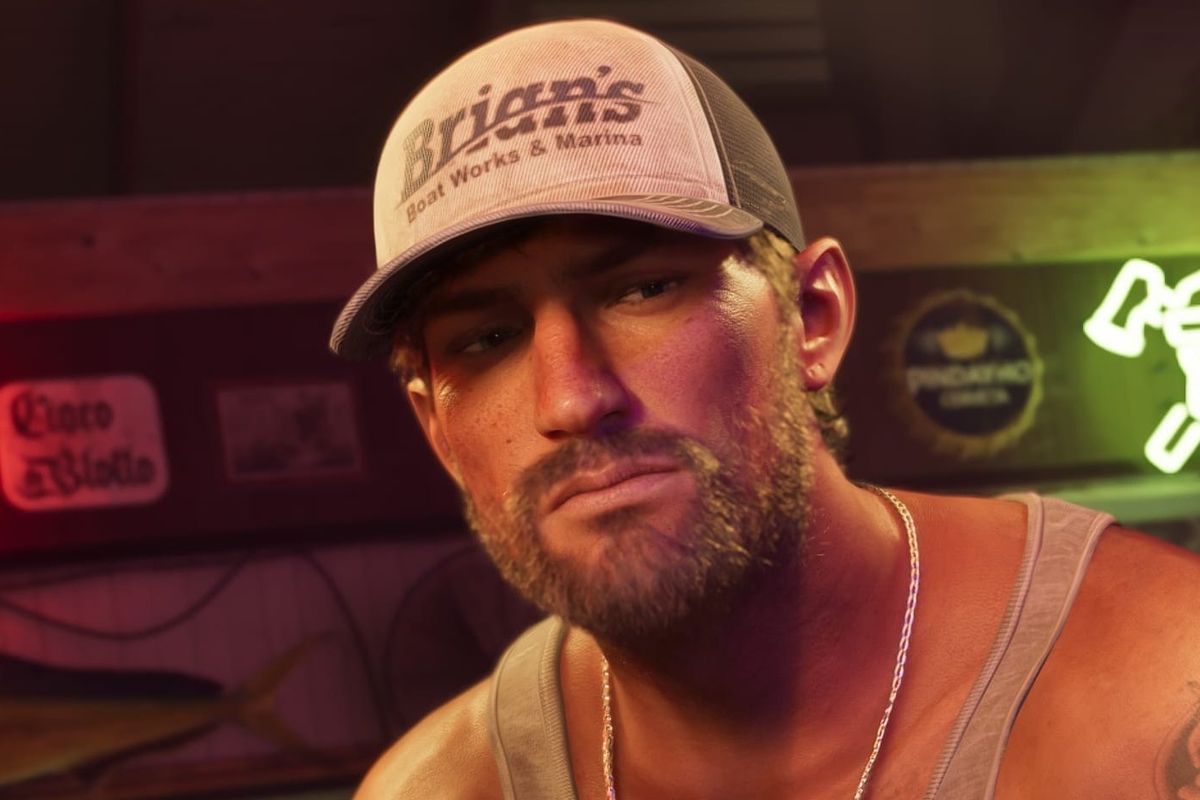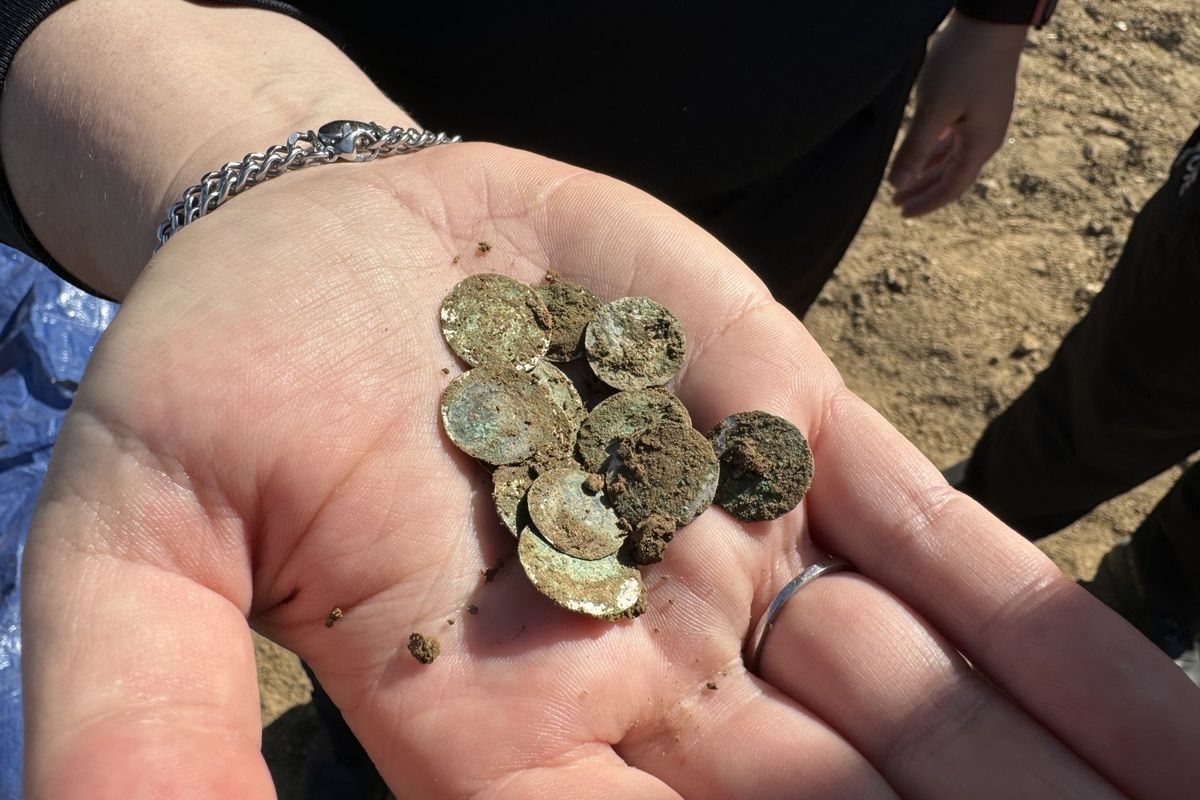News
Louis Dor
Apr 14, 2016
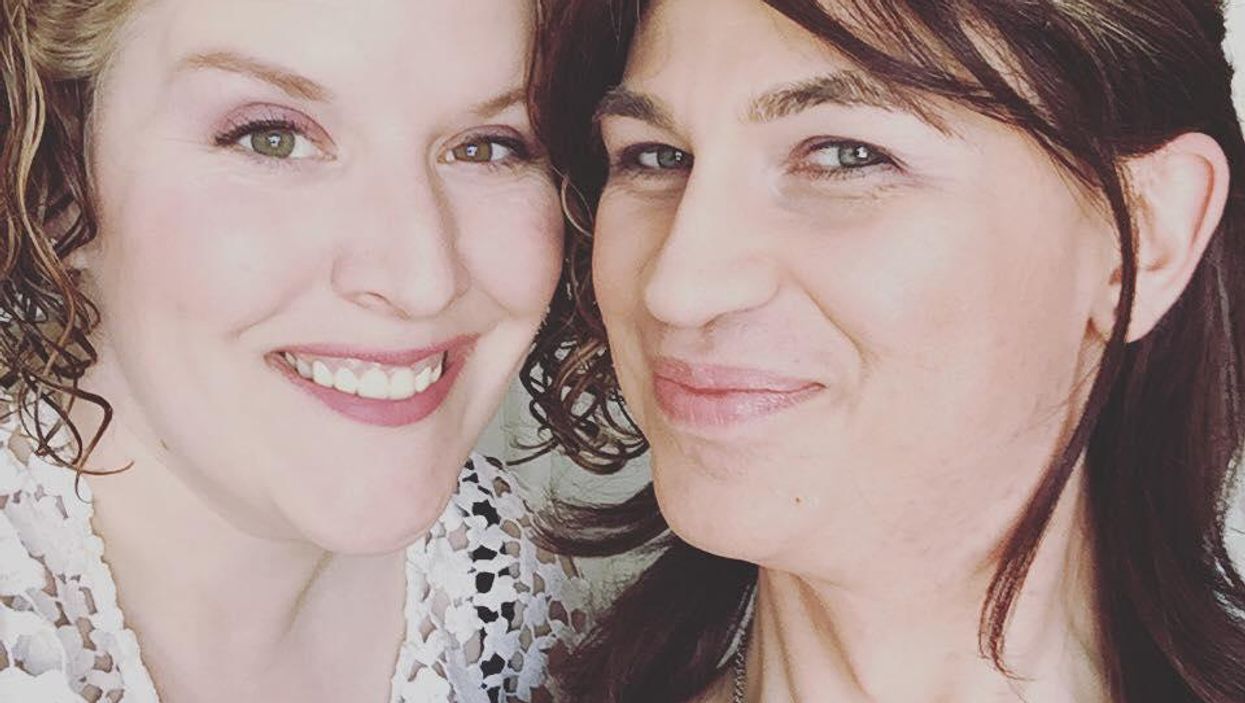
Zoe Knox lives in Ottawa, Canada, with her wife Amanda and their three children.
Zoe came out to her family as transgender last summer, and has been coming out to friends and family as part of a slow process ever since.
Recently, she came out to her workplace, having sent an email to her colleagues at the technology company - a predominately male office - informing them so.
The response was one of overwhelming support in Amanda's words:
She received about 75 incredibly kind responses from co-workers, both local and international.
Zoe then took two weeks, one working at home, before returning to the office, a little nervous at what the response would be.
Her office responded in the most supportive way, by decorating her cubicle, issuing a new placard, providing a new office plant with a "Welcome, Zoe!" tag and a framed quotation.
If that wasn't enough, a scheduled 10am meeting actually turned out to be a party in Zoe's honour, to welcome her return to the company as her true self.
The lovely tale, has, unsurprisingly, been the subject of intense media interest after Amanda's blog post about it on 4 April.
Zoe's story has been covered by news outlets worldwide, so indy100 caught up with Amanda to ask her how the family are doing, and how life has been at Zoe's workplace since.
Amanda told indy100:
We're actually doing really well. There has been very little bigotry thrown our way, which I'm grateful for.
When I wrote the initial post, I just wanted to thank Zoe's co-workers by giving them a shout-out on my blog, and maybe inspire a handful of people to think positively about their own co-workers' transitions. To see it go this viral is incredible.
She's also been pleased, overall with the reception to the story:
For the most part, the internet has been much like a giant hug - providing we stay out of the comments sections, of course.
The reception this story has received is so far beyond what any of us expected.
Amanda said that everyone at the office has "continued to be very supportive" of Zoe, and things have returned to business as usual.
She says that Zoe:
is a private person by nature, and so this type of attention is way out of her comfort zone. But she figures if she's going to go public for anything, this is an important reason.
However, there have been a few bumps in the road.
Although Paypal have been an ally of the LGBT community on the whole - as evidenced by recently withdrawn plans for expansion in Charlotte, North Carolina over discriminatory legislation, the company have made "changing your name a huge challenge when you transition" according to Amanda:
Zoe tried several times - with all the appropriate legal documentation - and eventually just closed her account, which was incredibly simple, by contrast.
Companies in general can and should do more, and there's a few simple ways to achieve this:
It is a huge undertaking to transition; let's make it easier. Have name change policies that make sense. Make sure your employees are trained in how to help transitioning customers. Don't assume a client's pronouns if they haven't been given to you.
Amanda also cites "bathroom bills" and common misconceptions about the trans community as other sources of grief:
The idea that being trans is a choice; that it's a lifestyle chosen by paedophiles and perverts; that it's a mental illness; that it can be changed or cured; that gender-diverse children are being led astray by the medical community or the latest parenting trend.
The amount of misinformation is unreal and incredibly harmful.
In addition, Amanda notes some media outlets have not been supportive in their practices:
We had an unfortunate experience with a publication last week whose journalists, without my knowledge, went through my social media profiles and blog to find material on our family.
The article they wrote not only used my wife's former name, but also showed side-by-side before-and-after transition photos. I burst into tears when I saw it. It was incredibly violating and incredibly wrong.
Unless a transgender person gives you permission to "deadname" them in an article or use pre-transition photos, those should be strictly off-limits.
The amount of emotional damage it can cause is monumental, and doing so can also pose safety risks to trans people and their families.
In short: ask questions, ask permission, do the right thing.
However, the response to Zoe's story has been an uplifting one overall:
Having received threats in the past, I was prepared for a far more mixed reaction from the world. So far, I'm being proven wonderfully wrong.
Let's hope this is a sign that the world is ready to truly begin embracing, learning from, and beginning to understand the transgender community.
Hear hear.
More: This trans man just answered the incredibly personal question 'how do you have sex?'
More: What happened when people from the trans community were asked to answer questions they often hear
Top 100
The Conversation (0)
